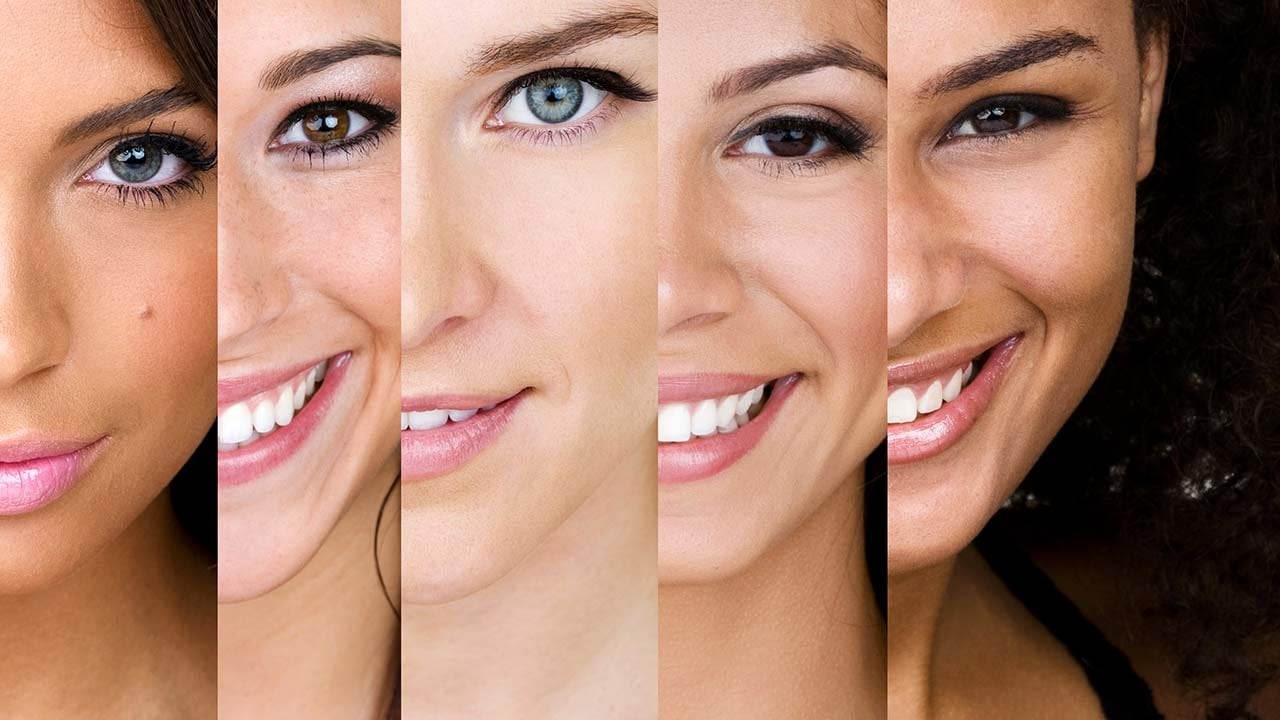Are you tired of dull, lifeless skin that lacks radiance and vitality? Do you dream of having a naturally glowing complexion that turns heads wherever you go? If so, you’re in the right place!
In this blog post, we’ll be sharing essential skincare tips that will help you achieve a healthy, luminous look that will make you feel confident and beautiful. From understanding the importance of a consistent skincare routine to discovering the power of natural ingredients, we’ll guide you through the steps you need to take to say goodbye to lackluster skin and hello to a radiant, glowing appearance.
So, get ready to embark on a journey towards flawless skin that will leave everyone wondering about your secret.
Table of Contents
ToggleTransform Your Skin: The Ultimate Guide to Achieving a Radiant Complexion
Achieving a radiant complexion is something that many people strive for. With so many products and routines available, it can be difficult to know where to start. In this ultimate guide, we’ll outline the key steps and tips you need to follow to transform your skin and achieve a healthy, glowing complexion.
Essential Steps for Radiant Skin
Develop a consistent skincare routine:
Establishing a daily routine that includes cleansing, toning, moisturizing, and applying sunscreen is crucial for maintaining healthy skin.
Choose the right products for your skin type:
It's essential to use products specifically formulated for your skin type, whether it's oily, dry, combination, or sensitive.
Exfoliate regularly:
Removing dead skin cells through exfoliation helps reveal brighter, more even-toned skin. Aim to exfoliate 1-2 times per week, depending on your skin type.
Stay hydrated:
Drinking plenty of water throughout the day keeps your skin hydrated and helps maintain its elasticity.
Eat a balanced diet:
Consuming nutrient-rich foods, such as fruits, vegetables, whole grains, and lean proteins, provides your skin with essential vitamins and minerals.
Protect your skin from the sun:
Wearing sunscreen with at least SPF 30 every day, even when it's cloudy, prevents premature aging and damage caused by harmful UV rays.
Get enough sleep:
Aim for 7-9 hours of sleep per night to give your skin time to repair and regenerate.
Manage stress:
Stress can negatively impact your skin's health, so try incorporating relaxation techniques like meditation, yoga, or deep breathing exercises into your daily routine.
Tips for Enhancing Your Complexion
Incorporate antioxidant-rich products:
Antioxidants help protect the skin from environmental damage and promote a more even complexion. Look for products containing ingredients like vitamin C, vitamin E, and green tea extract.
Use a retinol-based product:
Retinol is a form of vitamin A that can help improve skin's texture, reduce the appearance of fine lines, and promote collagen production.
Consider professional treatments:
For more dramatic results, consider professional treatments like chemical peels, microdermabrasion, or laser therapy to target specific skin concerns.
Don't forget about your neck and décolletage:
These areas are often neglected but are just as susceptible to aging and damage. Include them in your skincare routine to maintain a youthful appearance.
Keep your hands off your face:
Touching your face frequently can introduce bacteria and cause breakouts. Resist the urge to pick at pimples or touch your face unnecessarily.
By following these steps and tips, you’ll be well on your way to achieving a radiant complexion. Remember, consistency is key, and it may take some time to see results. Be patient and give your skin the care and attention it deserves.
The Perfect Skincare Routine: Expert Tips for Every Skin Type and Concern
A flawless complexion is something we all desire, but finding the perfect skincare routine can be a challenge. With countless products and treatments available, it’s easy to feel overwhelmed. Fear not! We’ve compiled expert tips to help you create the ideal skincare routine tailored to your specific skin type and concerns.

Know Your Skin Type
Before diving into any skincare routine, it’s essential to identify your skin type. This will ensure you choose the right products and techniques.
Characterised by excess oil production, enlarged pores, and a shiny appearance.
Often feels tight and may have visible flaking or rough patches.
A mix of oily and dry areas, typically with an oily T-zone (forehead, nose, and chin) and drier cheeks.
Prone to redness, irritation, and reactions to various products or environmental factors.
Well-balanced, not too oily or dry, with few blemishes or sensitivities.
Essential Steps in a Skincare Routine
Regardless of your skin type, there are some fundamental steps to follow in your daily skincare routine:
Gently removes dirt, oil, and makeup, leaving your skin refreshed and clean.
Helps balance your skin’s pH levels and prepares it for the next steps in your routine.
Concentrated formulas that target specific skin concerns like fine lines, dark spots, or dehydration.
Hydrates and locks in moisture, keeping your skin soft and supple
Protects your skin from harmful UV rays and prevents premature aging.
Expert Tips for Tailored Skincare Routines
Oily Skin
- Opt for oil-free, non-comedogenic products that won't clog pores or exacerbate oiliness.
- Use a gentle exfoliator 2-3 times per week to remove dead skin cells and unclog pores.
- Look for mattifying products that help control shine throughout the day.
Dry Skin
- Choose hydrating, cream-based cleansers that won't strip your skin of its natural oils.
- Incorporate products with hyaluronic acid to deeply hydrate and retain moisture.
- Apply a rich, nourishing moisturizer morning and night to combat dryness.
Combination Skin
- Use a gentle, balancing cleanser that addresses both oily and dry areas.
- Consider layering lightweight serums to target specific concerns in different areas of your face.
- Apply a lightweight, oil-free moisturizer to maintain hydration without causing breakouts.
Sensitive Skin
- Stick to fragrance-free, hypoallergenic products to minimize the risk of irritation.
- Test new products on a small area of your skin before incorporating them into your routine.
- Avoid harsh exfoliants and opt for gentle, enzymatic exfoliators instead.
Normal Skin
- Maintain your skin's balance with a gentle, pH-balanced cleanser.
- Experiment with serums and treatments to address any minor concerns or enhance your complexion.
- Don't skimp on moisturiser or sunscreen—these steps are still crucial for maintaining healthy skin.
By understanding your skin type and following these expert tips, you can create the perfect skincare routine to achieve a glowing, healthy complexion. Remember to be patient; it may take some time to see results. Consistency is key, so stick with your tailored routine and enjoy the journey to beautiful skin
Glow-Boosting Ingredients: Discover the Power of Vitamins, Acids, and Peptides
Glow-boosting ingredients are known for their ability to improve the appearance and health of the skin, giving it a radiant and youthful glow. They often include a combination of vitamins, acids, and peptides that work together to provide various benefits. Let’s explore some of these ingredients and their powers:
Vitamins:
Known for its antioxidant properties, vitamin C helps brighten the skin, fade dark spots, and even out skin tone. It also boosts collagen production, which promotes skin elasticity and reduces the appearance of fine lines and wrinkles.
Another powerful antioxidant, vitamin E protects the skin from damage caused by free radicals. It also helps moisturise and soothe the skin, giving it a healthy and glowing appearance.
This ingredient stimulates cell turnover and collagen production, reducing the appearance of wrinkles and fine lines. It also helps improve skin texture and tone.
Acids:
Known for its excellent hydrating properties, hyaluronic acid attracts and retains moisture in the skin, resulting in plumper, more radiant skin.
A type of alpha hydroxy acid (AHA), glycolic acid exfoliates the skin, removing dead skin cells and promoting cell renewal. This leads to smoother, brighter skin and helps reduce the appearance of hyperpigmentation and acne scars.
A beta hydroxy acid (BHA), salicylic acid is known for its ability to penetrate deep into the pores and exfoliate them, making it effective for treating acne-prone skin. It also helps improve skin texture and tone.
Peptides:
Peptides Are Short Chains Of Amino Acids That Can Have Various Benefits For The Skin:
These peptides help stimulate collagen production, which improves skin elasticity and reduces the appearance of wrinkles and sagging.
Copper peptides aid in wound healing and promote the production of collagen and elastin. They also have antioxidant properties that help protect the skin from damage.
It’s important to note that the effectiveness of these ingredients may vary depending on their concentration, formulation, and individual skin types. Before incorporating any new skincare products into your routine, it’s recommended to consult with a dermatologist or skin care professional for personalised advice.
Nourish Your Skin from Within: Diet and Lifestyle Tips for a Healthy Glow
Achieving a healthy and glowing complexion involves more than just skincare products. Your diet and lifestyle choices play a crucial role in nourishing your skin from within. Here are some tips to help you achieve a healthy glow:

Remember, achieving healthy skin is a holistic process that involves a combination of skincare, diet, and lifestyle choices. By nourishing your skin from within, you can achieve a natural and radiant glow.
Professional Treatments for Unleashing Your Inner Glow: Cryotherapy, Light Therapy, and More
Unleashing your inner glow can be achieved through various professional treatments that aim to improve your skin’s health and appearance. Cryotherapy and light therapy are two popular options among many others. Let’s explore these treatments and their potential benefits.
Cryotherapy involves exposing the body or specific areas to extremely cold temperatures for a short period. Cryotherapy chambers or localised cryotherapy devices are used for this purpose. The treatment may help improve circulation, reduce inflammation, tighten pores, and enhance overall skin radiance. It can also promote collagen production, leading to firmer, younger-looking skin.

Chemical peels involve the application of a chemical solution to the skin, which exfoliates the outermost layer. This process removes dead skin cells, unclogs pores, and stimulates collagen production. Chemical peels can improve skin tone and texture, reduce hyperpigmentation, and minimise the appearance of wrinkles and acne scars.

Microdermabrasion is a non-invasive exfoliation technique that removes the outer layer of dead skin cells. It uses a device with a fine abrasive tip or tiny crystals to gently exfoliate the skin. Microdermabrasion can improve skin texture, reduce the appearance of fine lines, and enhance the effectiveness of skincare products.
Remember, achieving healthy skin is a holistic process that involves a combination of skincare, diet, and lifestyle choices. By nourishing your skin from within, you can achieve a natural and radiant glow.
Conclusion
In conclusion, achieving naturally glowing skin is within your reach by following the skincare tips and advice shared in this blog post. Remember that consistency, patience, and dedication are key factors in obtaining the radiant complexion you desire. It’s essential to listen to your skin’s needs, adopt a personalised skincare routine, and nourish it with the right ingredients to maintain its health and vitality.
However, a word of caution: Always be mindful of potential allergens or irritants, and consult with a dermatologist or skin care professional if you have any concerns or experience adverse reactions. Each person’s skin is unique, so what works for one individual may not necessarily yield the same results for another. By taking the time to understand your skin and treating it with care, you’ll be well on your way to unveiling a naturally glowing look that will leave you feeling confident and gorgeous.














